Archive
08 November 2018
AS to coordinate two large new public private research programmes
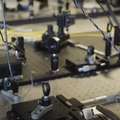
NWO (The Netherlands Organisation for Scientific Research) has announced the new research programmes that will be part of its ‘Perspective for Top Sectors' funding programme. Six public-private programmes will receive a total of 28 million euros. This amount consists of NWO funding (19 million), plus investments by the companies and organisations involved (9 million). Applied Sciences is involved in three programmes and will act as the coordinator of two of these programmes.
29 October 2018
EU awards ten million euro to European Quantum Internet Alliance to speed up development of Quantum Internet
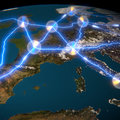
Today, the European Commission announced that its Quantum Flagship Programme will contribute 10 million euro to the development of a blueprint for a future quantum internet.
29 October 2018
Delft student team develops gene doping detection method and wins prizes in worldwide Synthetic Biology competition
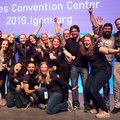
TU Delft students have devised and developed a method for detecting gene doping. This method, called ADOPE (Advanced Detection of Performance Enhancement) has the potential to combat the abuse of gene therapy in sport. Through this project, the students in the iGEM team aim to highlight how important it is that synthetic biology is used safely. They presented their idea at last week’s International Genetically Engineered Machine (iGEM) competition in Boston, winning prizes for their new application and product design.
24 October 2018
Efficient separation of CO2 and hydrogen with new membrane
Researcher Meixia Shan has developed and tested a new polymer membrane that separates CO2 and hydrogen very efficiently. On October 24th Shan, who has already published about this new membrane in Science Advances, defends her PhD-thesis on this subject at TU Delft.
23 October 2018
Former Applied Physics student Ad Bax receives prestigious chemistry award
During the 2018 Welch Conference on Chemical Research, on 22 October 2018, Adriaan (Ad) Bax was presented with the prestigious Welch Award in Chemistry. Bax, who works at one of the American National Institutes of Health, is a former student and PhD candidate of Delft University of Technology. He studied Applied Physics.
19 October 2018
Art from wastewater at the Dutch Design Week
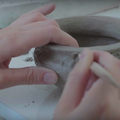
This week, three young designers and the Dutch water boards present Dutch Design made from 'Kaumera'. Kaumera is a new raw material that can be extracted from waste water by means of the Nereda purification process, which was developed in part by TU Delft. All three artists found a different application for the versatile raw material: in porcelain, textiles and woodwork. During the Dutch Design Week, from 20 to 28 October, the exhibition can be seen in the Veemgebouw (stand EFGF).
18 October 2018
QuTech researchers put forward a roadmap for quantum internet development
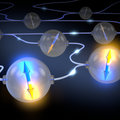
A quantum internet may very well be the first quantum information technology to become reality. Researchers at QuTech in Delft, The Netherlands, today published a comprehensive guide towards this goal in Science.
08 October 2018
Finnish Quantum company Bluefors starts R&D site on Delft Campus
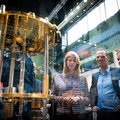
On 4 October during the Innovation Expo in Rotterdam, the Finnish company Bluefors announced that it will join the Delft quantum technology community and open an R&D office on the TU Delft campus.
05 October 2018
Ballistic graphene Josephson junctions enter microwave circuits
Superconducting quantum microwave circuits can function as qubits, the building blocks of a future quantum computer. A critical component of these circuits, the Josephson junction, is typically made using aluminium oxide. Researchers in the Quantum Nanoscience department at the Delft University of Technology have now successfully incorporated a graphene Josephson junction into a superconducting microwave circuit. Their work provides new insight into the interaction of superconductivity and graphene and its possibilities as a material for quantum technologies.
04 October 2018
TU Delft measurement technique shown to reveal important properties of quantum dots

Scientists have demonstrated that the positrons produced by the TU Delft research reactor are ideally suited for studying quantum dots, the building blocks of next generation solar cells.